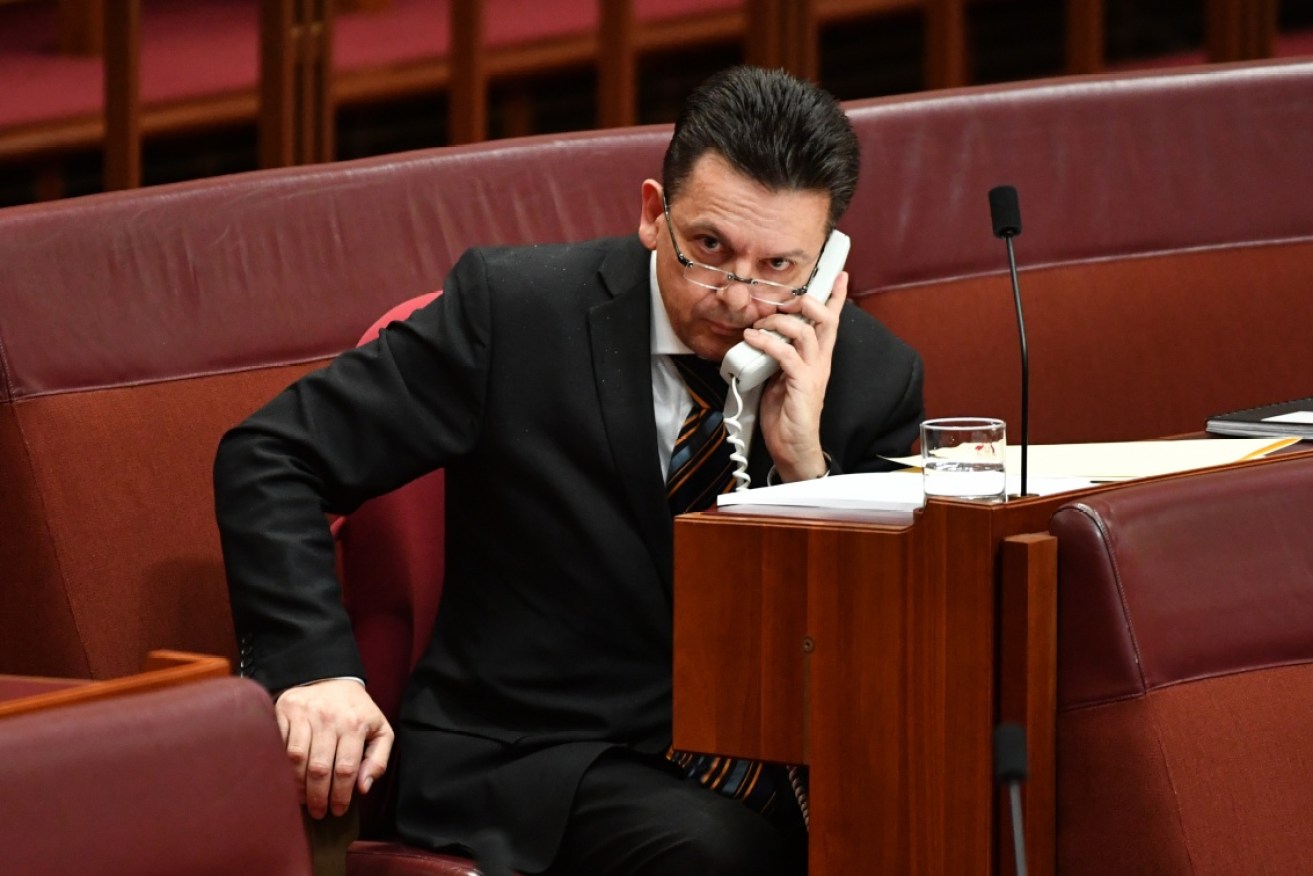Outcry as ‘dirty deal’ ushers in new media laws


The government struck a deal to pass a range of changes to the media industry with the support of Nick Xenophon. Photo: AAP
Media moguls, including Rupert Murdoch, will soon be able to own an even bigger slice of Australian media after a late-night deal ushered in the biggest change to local laws in more than three decades.
The government reached agreement late on Wednesday night with the Nick Xenophon Team to pass its media reform package, which includes controversially repealing the two out of three rule that forbids proprietors owning a newspaper, television network and radio station in the same license area.
The changes, which will also see the scrapping of license fees and the so-called ‘reach rule’, are now poised to pass the Senate. They effectively dismantle Paul Keating’s 1980s media reforms that allowed proprietors to be “queens of screen” or “princes of print” but not both.
They will almost certainly lead to even further consolidation of Australia’s already highly-concentrated media market and will delight proprietors such as Mr Murdoch who have been arguing for years that they should not be constrained in their attempts to get bigger.
But they will disappoint those wanting greater media diversity and fans of the ABC, which will now be subjected to greater scrutiny as part of a separate deal between the government and One Nation senators to get the changes over the line.
The ABC will have “fair and balanced” inserted into its Act and will be subjected to a competitive neutrality inquiry that critics fear threatens their free online website news and video streaming services.
Labor’s leader in the Senate, Penny Wong, said it was “pretty clear that the deal being done with One Nation is about attacking and gutting the ABC”.
Greens communications spokeswoman Sarah Hanson-Young claimed it would mean a paywall for ABC iView and SBS on Demand.
“The Australian people will not cop this very well. They will hate it,” she said.

The government’s media package has the backing of the country’s major media organisations. Photo: AAP
The government earned the crucial votes of the Xenophon team after it agreed to establish a $60 million fund for small and regional publishers to encourage employment of journalists and innovation.
Senator Xenophon said the new laws and the subsidies were necessary to stave off a crisis in journalism, but Labor senator Sam Dastyari accused him of doing a “dirty deal” that traded media diversity for “a $60m slush fund”.
“I’m not opposed to a deal, but at least make it a good one,” Senator Dastyari said.
Communications Minister Mitch Fifield said the changes would be a “shot in the arm” for the industry and give media outlets a “fighting chance”.
“What I see as the greatest threat to diversity in Australian media would be the failure of a significant media organisation,” Senator Fifield said.
The changes will “ensure we have strong Australian media voices into the future”, he said.
The government’s package had the backing of Australia’s largest media companies but Labor said it would hand “unprecedented power to a privileged few” in what is an already concentrated media market.
Following days of negotiations, the government also agreed to the $60 million fund for small and regional publishers.

Communications Minister Mitch Fifield says the nation’s current media laws are outdated. Photo: AAP
It will fund journalism cadetships via a wage subsidy while innovation grants will be available to fund equipment and software upgrades and staff training.
The fund – which will be administered by the communications regulator ACMA – will not be available to large publishers such as News Corp and Fairfax nor overseas players such as The Guardian and Buzzfeed, or any publisher affiliated with a union, superannuation fund or lobby group.
Senator Xenophon said the negotiations had been the most “difficult, protracted and robust” in his 20 years as a politician.
“I believe the outcome reached … is a good outcome for diversity of journalism, for journalists’ jobs, for small, independent and regional publications around the country,” he said.
He said Treasurer Scott Morrison had also agreed to instruct the ACCC to conduct a probe into Google and Facebook.
A Senate inquiry recently heard that Australian media companies were struggling to cope with the loss of advertising revenue which is being sucked away by the tech giants.
Labor’s communications spokeswoman Michelle Rowland said Senator Xenophon could “not wash [his] hands of this”.
The Greens were skeptical of the plan for taxpayer-subsidised cadetships, with leader Richard Di Natale saying they would be pointless without a pathway for maintaining jobs across the industry.
“The media landscape in Australia is crumbling before our eyes. It’s changing rapidly. And training journalists for jobs that don’t exist is a waste of taxpayer’s money,” he said.








